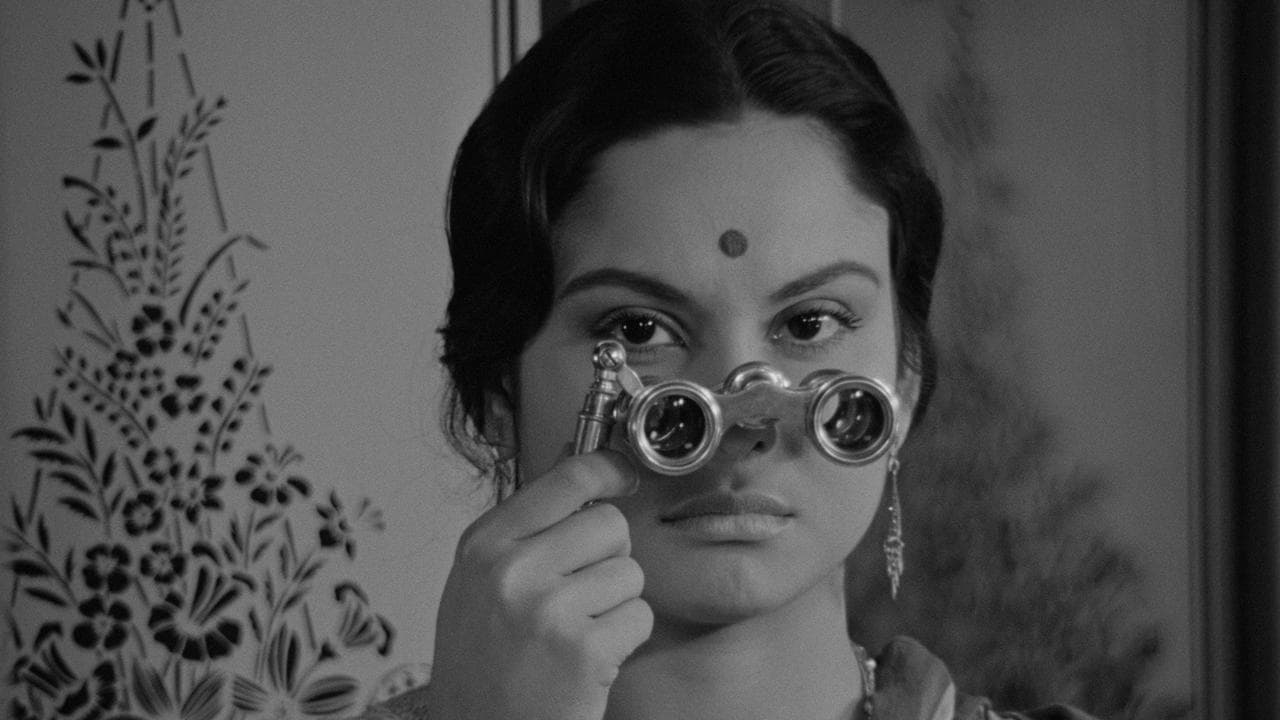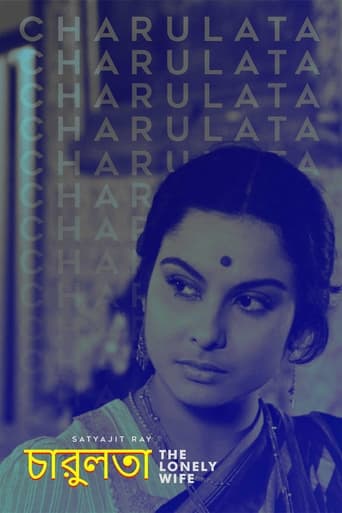



I didn’t really have many expectations going into the movie (good or bad), but I actually really enjoyed it. I really liked the characters and the banter between them.
View MoreBlistering performances.
This is a small, humorous movie in some ways, but it has a huge heart. What a nice experience.
View MoreThere's a more than satisfactory amount of boom-boom in the movie's trim running time.
View MoreI love character-driven film, but this glacially paced work is far too subtle for my tastes. I am a huge fan of director Satyajit Ray, and his Apu trilogy, "The Music Room," and "The Home and the World" are among some of the best films I've ever seen. However, "Charulata" seemed to me a soap opera crafted by an Ingmar Bergman wannabe. I was surprised, given Ray's obvious talents. We have the story here of a very unhappy housewife, a privileged woman married as a child bride to a significantly older man with whom she has nothing in common. One day along comes her "cousin-in-law," an age peer who shares her love of reading, singing, and not being particularly industrious. Over time, it seems that Charulata takes quite a liking to this man, who provides some respite from her brain-numbing lassitude. She takes to hoping that, even though he is single and talented, he will never leave her gilded cage. One day, she loses herself to this sentiment and clings to the man, who shuns her with an icy "Let go of me!" Suddenly, Charulata's husband realizes that there are problems in the marriage and he attempts a radical personality change. I didn't buy a bit of it and it's irking that Ray seems to think I would.I am amazed that the often astute reviewers of imdb consider this a masterpiece.
View MoreSatyajit Ray is so good at staging his scenes from inside the minds of his characters, and I think it is why he was so successful at crossing over to foreign audiences - his empathy for the people behind his characters. He always reached to get beyond the simple exchange of dialog - watching a Ray film is watching him carefully invade the mind of his creations. Their flaws, their desires, their loves all seem so universal coming from his camera. The photography is one of the greatest joys of Charulata, as in most of his films - the camera feels so free, so unbound to any set formula or rule of how to operate it, the joy of the operator (Ray himself) so apparent. It glides throughout all of his films, playing the eyes of some omniscient presence the characters are sometimes semi aware of. We are jolted when they look into the camera and sing, but because we have been already lulled into his world it feels completely natural that they would sing to us. Charulata is slower, more obtuse than some of Ray's earlier films, and it feels longer. I was underwhelmed by the story, which I felt took too many left turns. But Charulata is a persistently fascinating film, particularly the almost out-of-body performance by Soumitra Chatterjee.
View MoreCharulata displays a subtle story about the contradictions facing a cultivated and intelligent - yet idle - woman in a male-dominated society. Charulata's husband is a very rich man, a liberal intellectual and the editor of a journal "The Sentinel", dedicated to the "propagation of the truth". Unfortunately, the husband, though an honest man and an idealist, fails to give enough attention to his wife Charulata. The latter is interested in romantic Bengali literature, not politics. Her intellectual perspective thus clashes with that of her husband, who looks down on literature, and in particular on that literature which relates to love.Through a unique understated sentimental experience, which forms the core of the movie, Charulata reveals to herself and her husband a power to act on the world. After a series of difficulties that affect her husband's newspaper and her own sentimental self, Charulata finally takes a step forward and proposes to collaborate with her husband. However, the director makes us doubt that love and work can be reconciled by referring to the title of the Tagore literary work the movie is adapted from, the "broken nest".Contrary to what my comments above may suggest, this is NOT a movie with a heavy and obvious political message. The cinematographic style is thus often reminiscent of Jean Renoir's "Une Partie de Campagne", with, in particular, the use of a swing. The movie has little dialogue and uses the subtlety of symbols and the actors' facial expressions to convey what the characters go through. The characters are the center of the story as individuals, not archetypes, but it is because they are so credible and complex as individuals that they can make us think about universal questions.
View MoreThe best Satyajit Ray movie. Ray, at his peak, gave us his most convincing insight into love and loyalty, two of his universal themes. Unfortunately, the brilliant Apu trilogy has more of an visceral draw to Western audiences and Charulata is overlooked. The Apu trilogy invokes the idea of the Western view of India right or wrong while Charulata almost represents an anomaly of upperclass Indians in the late Victorian era.Charulata actually is a better film than any of those in the Apu trilogy (as hard as that is to believe) not to mention the most visually striking. However, the one thing Apu trilogy has over Charulata is its freshness. But this almost the same situation as Martin Scorsese and Mean Streets and Taxi Driver. This is not to say that he didn't make any good movies after that. Goodfellas is perhaps his best.In the end, Ray had style as well as substance in many of his films and Charulata represents that pinnacle while the Apu trilogy establishes what was to come.
View More